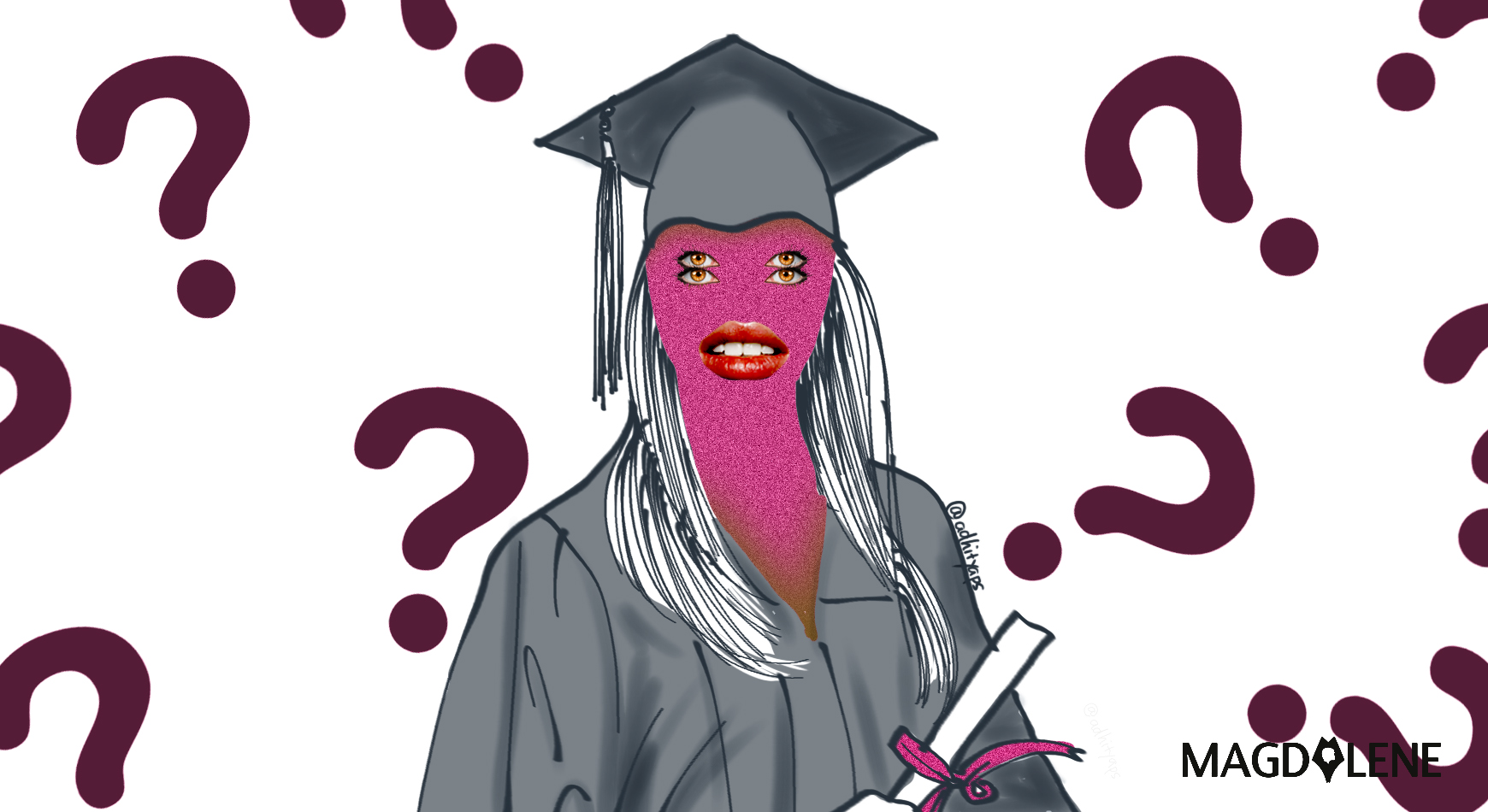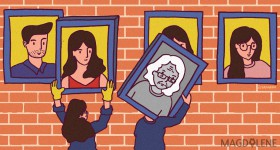“I was educated to be stupid, to simply accept what I was told. With the world as it is, I am doubtful simply accepting what one is told is the way forward.”
These words from an article titled “I Was Educated to be Stupid” by Segilola Salami resonate with me. They lead me to question education too. We are taught that education is the key to empowerment, but what if it actually systematically reproduces and normalizes oppression?
I am not saying that education doesn’t have any positive effect, but the current education system may have lost its essence: critical thinking, which generally means to question everything, especially those we have taken for granted (or accepted as “normal”).
Asking questions is actually in the nature of humans, as demonstrated by children. But as we grow up, we learn that being curious may not always be regarded as a good thing. Eventually, we acknowledge that it is better to just shut up and be obedient, the same way we admit it is safer to conform to the norms, even if it’s killing us inside. But that’s what it means to grow up, right?
Except it may also be a deliberate system created to make people compliant, as this piece on Ruthless Criticism phrases it: "School makes people stupid. This does not represent a failure of school, but is one of its official tasks.”
Whether our capabilities to think critically is naturally (by learning about what is “appropriate” from other people’s reactions) or systematically (through education system) killed, it may be something we need in order to blend into the society.
It further explains that “a healthy portion of stupidity is needed for those services which the citizens of this country have to constantly perform: namely, for the subordination of the free will to all the pressures and constraints of this society.”
I do believe that freedom entails responsibility and we need to respect other people’s rights, and this may lead us to conform to some constraints, but it doesn’t mean defying the norms is always wrong.
To decide what is right and wrong requires critical thinking, and the acknowledgement that what is right for one person may be wrong for another, as researcher Chris Barker wrote, “Knowledge is never a neutral or objective phenomenon but a matter of positionality, that is, of the place from which one speaks, to whom, and for what purposes.”
“The current education system may have lost its essence: critical thinking, which generally means to question everything, especially those we have taken for granted (or accepted as “normal”).”
Such thinking may create uncertainty, which could be good since it encourages diversity of thoughts, but it could also foster chaos. Not that chaos is always bad. The blog #ChaosIsGood reminds us that “humans are a result of and have evolved from chaos while modern society can only function if we seek order and predictability.”
However, it is in human’s nature to be unable to think straight in uncertain times. Author Jonah Lehrer sums it: “When people face an uncertain situation, they don’t carefully evaluate the information or look up relevant statistics. Instead, their decisions depend on a long list of mental shortcuts, which often lead them to make foolish decisions (as we tend to…) default to the answer that requires the least mental effort.”
Perhaps it could explain why people who are considered smart (or considered “should be” smart, given our tendency to equate high education or authority with being smart) can do things which are considered as stupid.
Though it may also bring us back to the point that education, at least to some point, are meant to make people stupid, by omitting critical thinking.
“The school owes its students to teach them how to think, not what to think; to question whatever they read, and never to accept any claim blindly; to suspend judgment until they’ve heard all sides of a question, and interrogate whatever claims to be true,” as educator Frank Breslin puts it in his column on Huffington Post.
It leaves us another question, though: if the claim that “we are educated to be stupid” is true, why would the system strive to do so, and keep doing so? It may be unintentional, but it may also because critical thinking is undesired.
Perhaps this is best left answered by the late comedian, social critic and author George Carlin in one of his stand-up performances: “There's a reason education SUCKS, and it's the same reason that it will never, ever, ever be fixed ... Because the owners of this country don't want that!







Comments